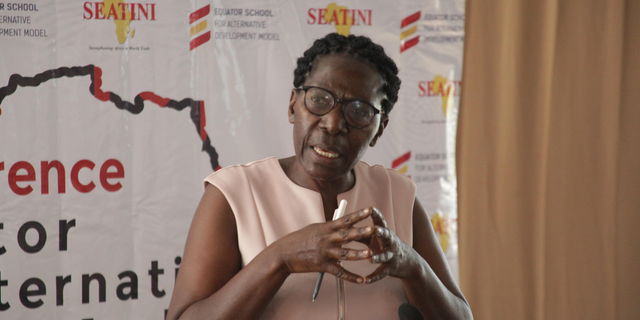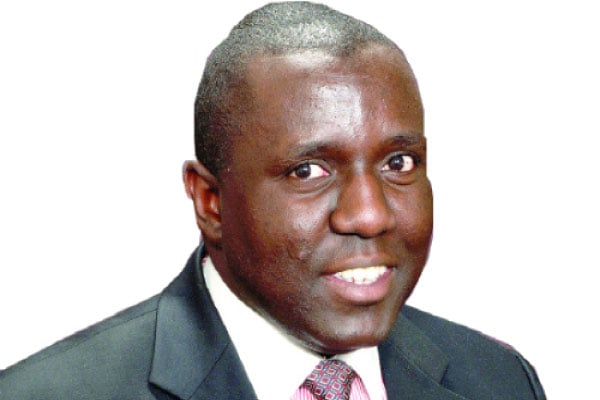Prime
Government coffee agreement is a raw deal, says treaty expert

Jane Seruwagi Nalunga
What you need to know:
On 10th February 2022, the government represented by the Minister of Finance, Mr Matia Kasaija signed an investment Agreement with Uganda Vinci Coffee Company Limited (UVCC) represented by Ms Enrica Pinetti, the Board chairperson of the company. The Agreement outlines several incentives for the company to set up a coffee processing plant in Namanve. Ms Jane Seruwagi Nalunga, an expert on multilateral, bilateral, regional and national trade and investment policies and agreements, explained in an interview with the Prosper Magazine’s Ismail Musa Ladu, why this arrangement the government has committed the country into is a raw deal.
Why should the country care about this agreement?
The coffee industry is extremely important to both the people of Uganda and the Ugandan economy. Coffee is Uganda’s second major cash crop and it is a significant earner of foreign exchange for the economy and a source of livelihood for many Ugandans. Latest data from Uganda Coffee Development Authority (UDCA) indicates that Uganda’s coffee exports for 12 months (February 2021-January 2022) totaled 6.72 million bags worth $741.03 million compared to 5.47 million bags worth $ 511.66 million of the previous year 2020. Besides, between 1.2 and 1.7 million families in Uganda produce coffee.
So what are your qualms with the agreement?
Let us begin with the clause 3.1.4. This speaks to exporting of the excess green coffee beans until upon satisfaction of the installed capacity of the coffee processing facility at Kampala Industrial and Business Park at Namanve. Now, this clause creates unfair competition between the company and the other local investors as it gives the Vinci company liberty to export the excess green coffee beans coupled with the multiple incentives that are awarded including an advantage of priority supply hence creating an imbalance in competing for similar market with the other exporters. Remember, the main objective of this Agreement is to set up a processing plant to add value and reduce the exportation of raw beans which leaves Uganda trapped at the lower bottom of the value chain since the highest revenue collected from coffee is at the upper levels of the value chain.
Then there is clause 4.1.2. Here, we see comprehensive relief and exemption provided from taxes which are way beyond the law. Government commits to exempt VINCI company from all taxes including those which are not exempted under the laws of Uganda. The latter connotes that where a tax is not exempt under the laws of Uganda, Government will pay the tax on behalf of the company. This exposes Uganda to a risk of losing revenue to pay on behalf of the company.
Further, Section 12 of the investment code Act provides for the minimum capital investment required for a foreign investor to qualify for incentives. However, the Agreement does not provide for the capital investment amount of money in the Agreement, it is unclear how VINCI has qualified for all the incentives provided for under the Act.
We recommend that the government amends the Agreement to cater for incentives as per the law and should not commit Ugandans to payment of tax for VINCI business.
As for clause 4.1.3, the government commits to taking immediate steps to restore the company to the economic position it should have been in should there be a change in law or change in tax that affects the operations of the company. This clause bears risk on government yet throughout the Agreement, the government does not have any cost benefit therein. It is thus absurd that despite all the incentives given, government still has to bear cost for the losses incurred by the company.
On clause 4.2.1, government undertakes that it will take all reasonable measures to give priority of supply of coffee to the company before registering any contract or acknowledging any arrangement for the export of coffee beans so that the company will have ample supply of coffee to sustain its operation. This clause is creating monopoly for VINCI to the extent that it is the sole market before all the other already existing exporters to whom farmers have been supplying coffee beans.
This clause thus brings about uncertainty in supply to the other existing exporters which will in turn affect their capacity in exports. Important to note is that the MoU [Memorandum of Understanding] does not create any limit to how much supply VINCI should take in yet it puts a clause to supply other exporters unless VINCI is satisfied.
The clause also limits farmers from looking for other markets other than from VINCI yet this Agreement is between the government and VINCI and thus cannot bind farmers who are not parties to this Agreement.
According to clause 4.2.2, the Company undertakes that it will pay for the priority supply of superior quality coffee beans at a premium price to be determined by the company but in any case, not lower than the price approved by the Relevant Authority for a particular consignment or the prevailing International price for each respective grade of coffee whichever is lower.
This clause when read with clause 4.2.1 suggests that VINCI will have access to the superior quality before all the other exporters. Knowing that there is no limit to what surplus VINCI should obtain, this puts other exporters at the risk of acquiring poor quality.
Setting price by VINCI will not only put the farmers at the risk of loss but will affect their livelihood since coffee is the source of livelihood to over 12,000 households in the country. It should also be noted that other exporters in the sector do not set price for the farmers but negotiate with the farmers on the best price. We recommend that the government amend the MOU and leave the right to decide on the price with the farmers and they should be able to sell to the exporter with the best price that suits their products.
So far, there are several disturbing revelations here. How bad can this get?
This is a badly negotiated agreement for the country. If you look at 4.4 clause on electricity supply, you realise that the company shall be given a subsidy so that the price it pays for electricity at the plant does not exceed $5 cents per unit. By September 2021, the price of electricity was $0.189 (Shs672.875) per kWh for households and $0.148 (Shs526.900) for businesses which includes all components of the electricity bill such as the cost of power, distribution and taxes. For comparison, the average price of electricity in the world for that period was $0.137 per kWh for households and $0.128 for businesses.
This proposed 5 cent is thus way lower than what an ordinary Ugandan is paying yet will be consuming less. If the country wants to collect enough revenue, then this clause should be rethought so that the poor Ugandan does not pay the price for investors. Therefore, the MoU should be amended to show value for money for what VINCI will be consuming that is, they should pay at least Shs400.900 for the electricity to be consumed.
And on exercise of transfer option, it is stated that the company may exercise the option to sell and transfer the plant to the GoU or a third party. This clause does not make it mandatory for the government of Uganda to take over the plant yet through the Agreement, there has been so much burden of payments and risk levied on the government and tax payer’s money.
The MoU should be amended to make it mandatory for the plant to be sold to the government if VINCI is exercising transfer options such that it acts as a future economic benefit in case of loss of the investor.
Absence of a termination clause is also disturbing. The termination clause is fundamental so as not leave any ambiguity in determining the term and obligations set out in the Agreement. Consideration of these termination clause in this Agreement will help parties know exactly when it will get terminated and what events may cause such termination
The investment capital is also not indicated in the Agreement. The Uganda Investment Code of 2019 requires that a foreign investor qualifies for incentives where the investor makes a capital investment or an equivalent in capital goods worth at least $500,000 as way of capital invested.
What is the way forward?
There should be a review of the Investment Code Act 2019 to ensure that investments deliver on their promises; It should ensure that investments established in Uganda work for the people by fostering inclusive and sustainable development through enhanced forward and backward linkages, employment creation, skills and technological transfer.





